Tobe Hooper(1943-2017)
- Director
- Writer
- Producer
Honored with many awards for his films and achievement in the horror genre, Tobe Hooper is truly one of the Masters of Horror (2005).
Tobe Hooper was born in Austin, Texas, to Lois Belle (Crosby) and Norman William Ray Hooper, who owned a theater in San Angelo. He spent the 1960s as a college professor and documentary cameraman. In 1974, he organized a small cast that was made up of college teachers and students, and then he and Kim Henkel made The Texas Chain Saw Massacre (1974), featuring the maniacal chainsaw-wielder Leatherface (Gunnar Hansen). This film changed the horror film industry and became an instant classic, remaining on many lists of top horror films of all time. Hooper based it upon the real-life killings of Ed Gein, a cannibalistic killer responsible for the grisly murders of several people in 1950s Wisconsin. Rex Reed said, "It's the scariest film I have ever seen." Leonard Maltin wrote, "While not nearly as gory as its title suggests, 'Massacre' is a genuinely terrifying film made even more unsettling by its twisted but undeniably hilarious black comedy." It is in the Permanent Collection of the Museum of Modern Art, and was officially selected at the Cannes Film Festival of 1975 for Directors Fortnight.
Hooper's success with "Chainsaw" landed him in Hollywood. Hooper rejoined the cast of "Texas" and with Kim Henkle again for Eaten Alive (1976), a gory horror film with Mel Ferrer, Carolyn Jones, William Finley, and Marilyn Burns (who played the lead in "Chainsaw"). The film centered around a caretaker of a motel who feeds his guests to his pet alligator. Also in the film was Robert Englund, whom Hooper helped advance his career and worked with him again in the future. "Eaten Alive" also won many awards at Horror Film Festivals, receiving the first Saturn Award. Also in the film, making his debut, was Robert Englund.
Hooper was assigned to the Film Ventures International production of The Dark (1979), a science-fiction thriller. After only three day, he was fired from the film and replaced with John 'Bud' Cardos. Instead, Hooper had greater success with Stephen King's 1979 mini series Salem's Lot (1979). In 1981, Hooper directed the teen slasher film The Funhouse (1981) for Universal Pictures. Despite its success, "The Funhouse" was a minor disappointment. In 1982, Hooper found greater success when Steven Spielberg hired him to direct his production, haunted house shocker Poltergeist (1982), for MGM. It quickly became a top-ranking major motion picture, but Hooper's reputation was waylaid by uncorroborated and spurious rumors spread throughout the film's press coverage that Spielberg had largely directed the film.
"Poltergeist" was perhaps a greater success than "Texas Chainsaw Massacre," but it was three years until Hooper found work again. He signed a three-year contract with Menahem Golan and Yoram Globus's Cannon Group, and directed more films, including Lifeforce (1985), with Patrick Stewart for TriStar; the minor remake Invaders from Mars (1986); and the disappointing sequel The Texas Chainsaw Massacre 2 (1986), with Dennis Hopper. During the mid-1980s, Hooper also directed several television projects, including episodes of Amazing Stories (1985), The Equalizer (1985), Freddy's Nightmares (1988) and Tales from the Crypt (1989) with Whoopi Goldberg.
In the 1990s, Hooper continued working in both film and television: I'm Dangerous Tonight (1990), Nowhere Man (1995), Dark Skies (1996), Perversions of Science (1997) with Jamie Kennedy and Jason Lee, The Apartment Complex (1999) with Amanda Plummer for Showtime, Night Terrors (1993) and The Mangler (1995) for New Line, the latter two with Robert Englund. In the new century Hooper's career grew stronger, with Night Visions (2001), Shadow Realm (2002) and the pilot episode for Steven Spielberg's award-winning miniseries Taken (2002).
In 2003, Hooper co-produced the successful remake of The Texas Chainsaw Massacre (2003) for New Line. His final three films as director were Toolbox Murders (2004), with Angela Bettis, released through Lions Gate; Mortuary (2005), a zombie film with Dan Byrd; and evil genie tale Djinn (2013).
Tobe Hooper died on August 26, 2017, in Sherman Oaks, Los Angeles.
Leatherface (2017), technically the eighth film in Hooper's Chainsaw franchise, was slated for release just weeks after his death.
Tobe Hooper was born in Austin, Texas, to Lois Belle (Crosby) and Norman William Ray Hooper, who owned a theater in San Angelo. He spent the 1960s as a college professor and documentary cameraman. In 1974, he organized a small cast that was made up of college teachers and students, and then he and Kim Henkel made The Texas Chain Saw Massacre (1974), featuring the maniacal chainsaw-wielder Leatherface (Gunnar Hansen). This film changed the horror film industry and became an instant classic, remaining on many lists of top horror films of all time. Hooper based it upon the real-life killings of Ed Gein, a cannibalistic killer responsible for the grisly murders of several people in 1950s Wisconsin. Rex Reed said, "It's the scariest film I have ever seen." Leonard Maltin wrote, "While not nearly as gory as its title suggests, 'Massacre' is a genuinely terrifying film made even more unsettling by its twisted but undeniably hilarious black comedy." It is in the Permanent Collection of the Museum of Modern Art, and was officially selected at the Cannes Film Festival of 1975 for Directors Fortnight.
Hooper's success with "Chainsaw" landed him in Hollywood. Hooper rejoined the cast of "Texas" and with Kim Henkle again for Eaten Alive (1976), a gory horror film with Mel Ferrer, Carolyn Jones, William Finley, and Marilyn Burns (who played the lead in "Chainsaw"). The film centered around a caretaker of a motel who feeds his guests to his pet alligator. Also in the film was Robert Englund, whom Hooper helped advance his career and worked with him again in the future. "Eaten Alive" also won many awards at Horror Film Festivals, receiving the first Saturn Award. Also in the film, making his debut, was Robert Englund.
Hooper was assigned to the Film Ventures International production of The Dark (1979), a science-fiction thriller. After only three day, he was fired from the film and replaced with John 'Bud' Cardos. Instead, Hooper had greater success with Stephen King's 1979 mini series Salem's Lot (1979). In 1981, Hooper directed the teen slasher film The Funhouse (1981) for Universal Pictures. Despite its success, "The Funhouse" was a minor disappointment. In 1982, Hooper found greater success when Steven Spielberg hired him to direct his production, haunted house shocker Poltergeist (1982), for MGM. It quickly became a top-ranking major motion picture, but Hooper's reputation was waylaid by uncorroborated and spurious rumors spread throughout the film's press coverage that Spielberg had largely directed the film.
"Poltergeist" was perhaps a greater success than "Texas Chainsaw Massacre," but it was three years until Hooper found work again. He signed a three-year contract with Menahem Golan and Yoram Globus's Cannon Group, and directed more films, including Lifeforce (1985), with Patrick Stewart for TriStar; the minor remake Invaders from Mars (1986); and the disappointing sequel The Texas Chainsaw Massacre 2 (1986), with Dennis Hopper. During the mid-1980s, Hooper also directed several television projects, including episodes of Amazing Stories (1985), The Equalizer (1985), Freddy's Nightmares (1988) and Tales from the Crypt (1989) with Whoopi Goldberg.
In the 1990s, Hooper continued working in both film and television: I'm Dangerous Tonight (1990), Nowhere Man (1995), Dark Skies (1996), Perversions of Science (1997) with Jamie Kennedy and Jason Lee, The Apartment Complex (1999) with Amanda Plummer for Showtime, Night Terrors (1993) and The Mangler (1995) for New Line, the latter two with Robert Englund. In the new century Hooper's career grew stronger, with Night Visions (2001), Shadow Realm (2002) and the pilot episode for Steven Spielberg's award-winning miniseries Taken (2002).
In 2003, Hooper co-produced the successful remake of The Texas Chainsaw Massacre (2003) for New Line. His final three films as director were Toolbox Murders (2004), with Angela Bettis, released through Lions Gate; Mortuary (2005), a zombie film with Dan Byrd; and evil genie tale Djinn (2013).
Tobe Hooper died on August 26, 2017, in Sherman Oaks, Los Angeles.
Leatherface (2017), technically the eighth film in Hooper's Chainsaw franchise, was slated for release just weeks after his death.


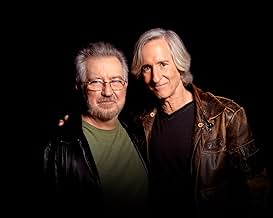
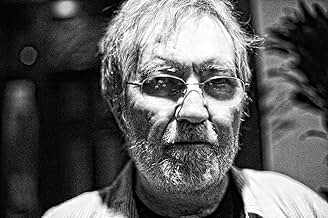
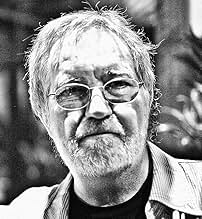
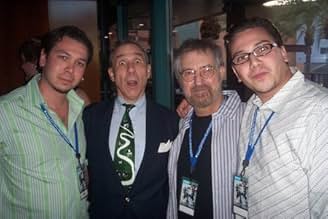
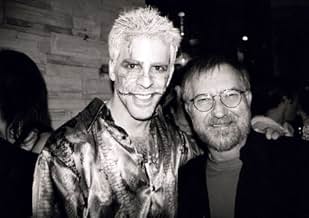

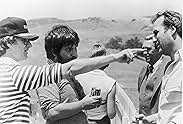




































![Lifeforce: [Collectors Edition] Blu-Ray](https://m.media-amazon.com/images/M/MV5BOGEyYWQ1ZWYtZTFiNC00NWU3LWEyNmYtZGEwMWViMjc3MGNhXkEyXkFqcGdeQXVyNzU1NzE3NTg@._V1_QL75_UX500_CR0)
![The Funhouse: Collector's Edition [Blu-Ray]](https://m.media-amazon.com/images/M/MV5BMDA5ZDQ4MmQtOGE2Zi00MDg3LWFiOTUtMWRmZjFkY2FmMDM5XkEyXkFqcGdeQXVyNzU1NzE3NTg@._V1_QL75_UX500_CR0)